When you shop for a travel eSIM or glance at your phone’s status bar, you will often see your phone show network types like “LTE”, “4G”, or sometimes even “5G”. Most people just assume it means “fast internet” and move on – which is fair enough, but there’s a bit more to it than that. […]
How to Find WiFi in China: Guide for Foreigners
Learn how to find WiFi and reliably access the Internet while traveling in China as a foreigner and overcome potential barriers like censorship and language differences.

Travelers exploring the vast and vibrant landscapes of China will need Internet access for everything, from navigating bustling city streets with map apps, using translation apps, to sharing travel memories with loved ones back home. So is WiFi available in China? The answer is Yes, but it is NOT EASY for travelers to connect to WiFi in China and use it. It is because China’s unique internet regulations are often referred to as the “Great Firewall”. Therefore, knowing how to find WiFi in China and use it will be essential when you need to connect to the Internet.
This article will show you how to find WiFi hotspots in China, connect to them, and stay safe on public WiFi there. We also suggest alternative options for Chinese free wireless connections.
In this article
I. Is WiFi available in China?
Yes. WiFi is widely available in China, especially in developed areas. You can easily find free WiFi in many public places like:
- Hotels or even hostels, from budget to luxury, offer complimentary WiFi often at decent speeds.
- Cafes and restaurants, especially international chains.
- Airports like Beijing Airport (BEJ) offer free WiFi, but through a registration process.
- Public spaces like parks, shopping malls, but the quality can vary.
However, it is hard for travelers and foreigners to use WiFi in China because:
- Many public WiFi networks require a Chinese phone number for text verification, which most travelers and foreigners will not have.
- Internet censorship in China is very restricted due to the Great Firewall. Many websites and social media platforms are blocked, such as YouTube, Facebook, Instagram, etc.
- Internet speed of public WiFi hotspots in China can be slow compared to that in other developed countries.
Notes:
- Use apps like WiFi Map or Wiman to locate the free WiFi hotspots near you. These apps often show passwords and user reviews.
- Be cautious about using public WiFi for sensitive activities like online banking, as these networks may not be secure. Consider using a VPN for added security. You can download a VPN before arriving in China to bypass internet restrictions and access blocked websites.
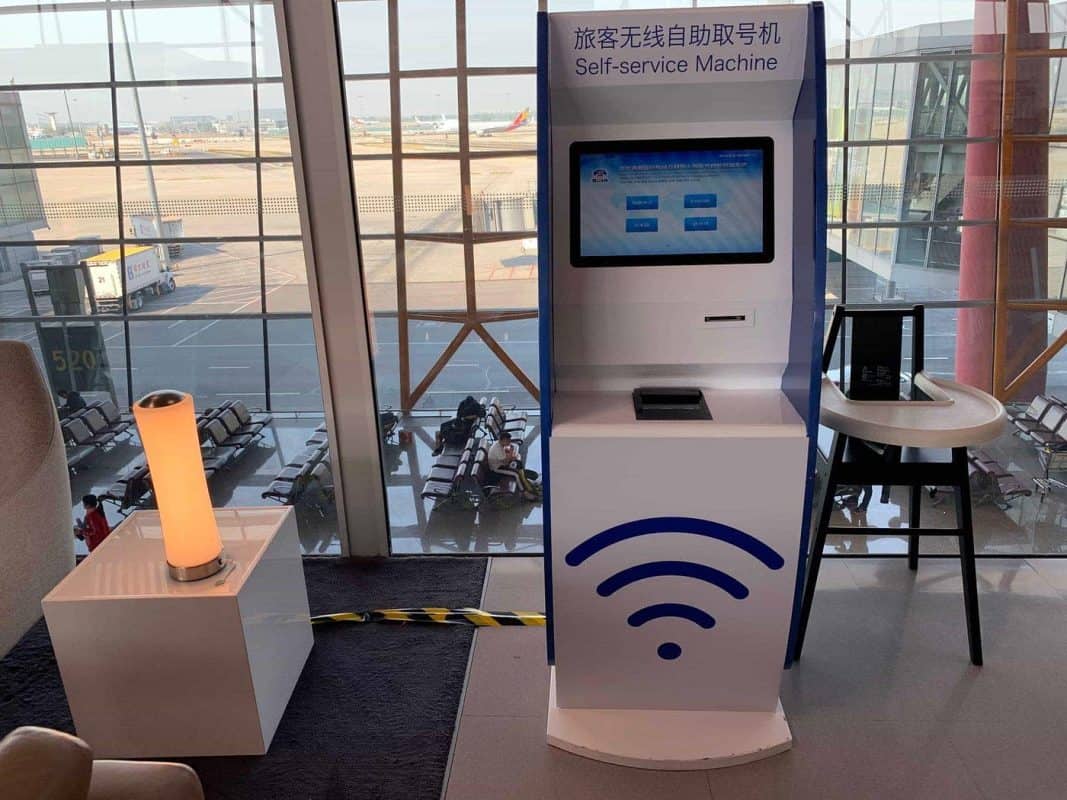
II. How to Connect to WiFi in China?
After choosing the WiFi spot you want to connect to, take the following steps:
- On your device, select the desired WiFi network from the available options
- Some networks are open access, allowing you to connect directly. Others will require a login process, which may involve:
- Password entry: Look for a password in the surrounding area or ask an employee
- Web portal: you may be redirected to a login portal, sometimes requiring acceptance of terms and conditions.
- Text verification: many public networks require a Chinese phone number for text verification.
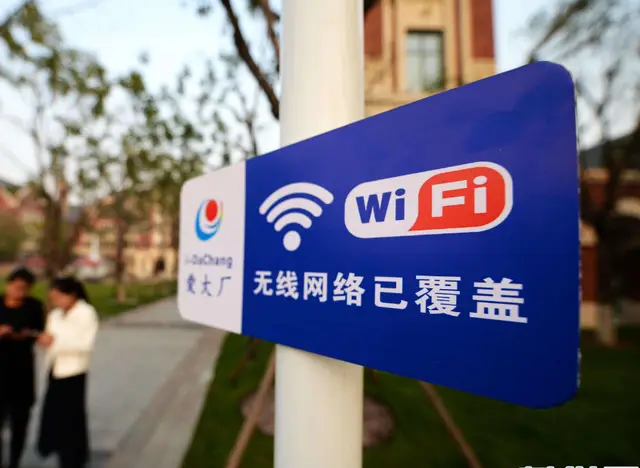
III. How to get text verification to access WiFi in China
Most short-term travelers and visitors will find it challenging to connect to many WiFi networks in China because they have no local phone number. However, there are always solutions to this problem:
- Buy a local China SIM card to get a Chinese phone number from major mobile carriers like China Mobile, China Unicom, or China Unicom. This option may not be ideal for short trips due to registration process and potential language barriers.
- Use verification services of online platforms that offer a temporary Chinese phone number specifically for receiving verification codes (usually costs a small fee per SMS). Remember to research and choose reputable services in advance.
- Rent a phone in China to get a temporary Chinese phone number and use it for local calls, data and other apps. This option is more expensive than buying a SIM card or using a verification service.
- Ask for help from hotels or locals. Some will help you with verification by receiving the code on your behalf. However, this option is not guaranteed.
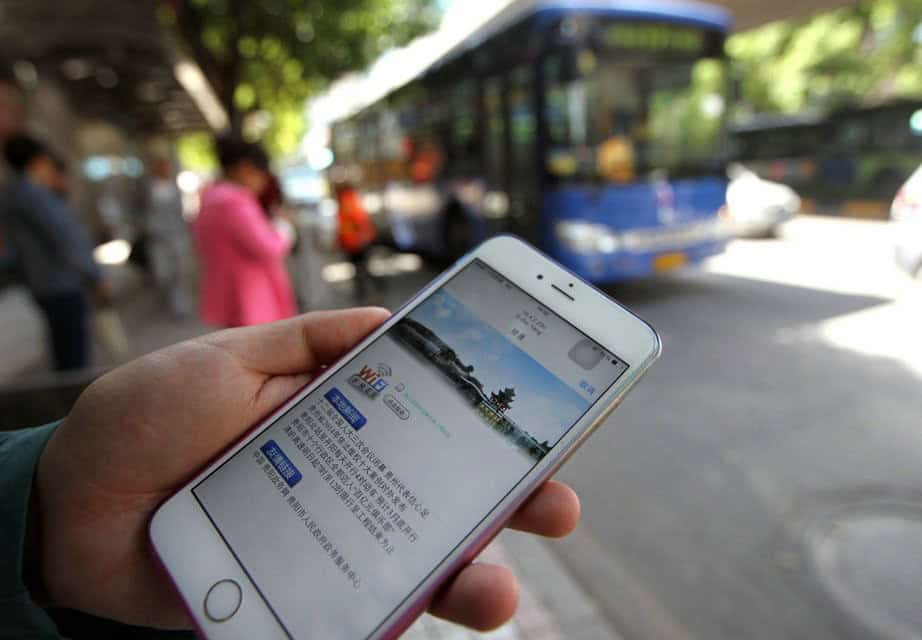
IV. Alternative options to WiFi in China
While public WiFi is widely available in China, it may not be secure, especially for sensitive tasks like online banking. For a safer and more reliable connection, consider these alternative options:
1. Tourist eSIM for China
A popular choice is a tourist eSIM, such as Gigago eSIM for China. eSIM is a convenient connectivity option that eliminates the use of a physical SIM card. You can buy and install it online before departure and activate it upon arriving in China.
However, this option requires an eSIM compatible device. Additionally, most eSIM plans for China are data-only and do not include a Chinese phone number, meaning you cannot use them for text verification. However, you can use the included cellular data for Internet access and voice/messaging apps like WhatsApp, Skype,… to stay connected.
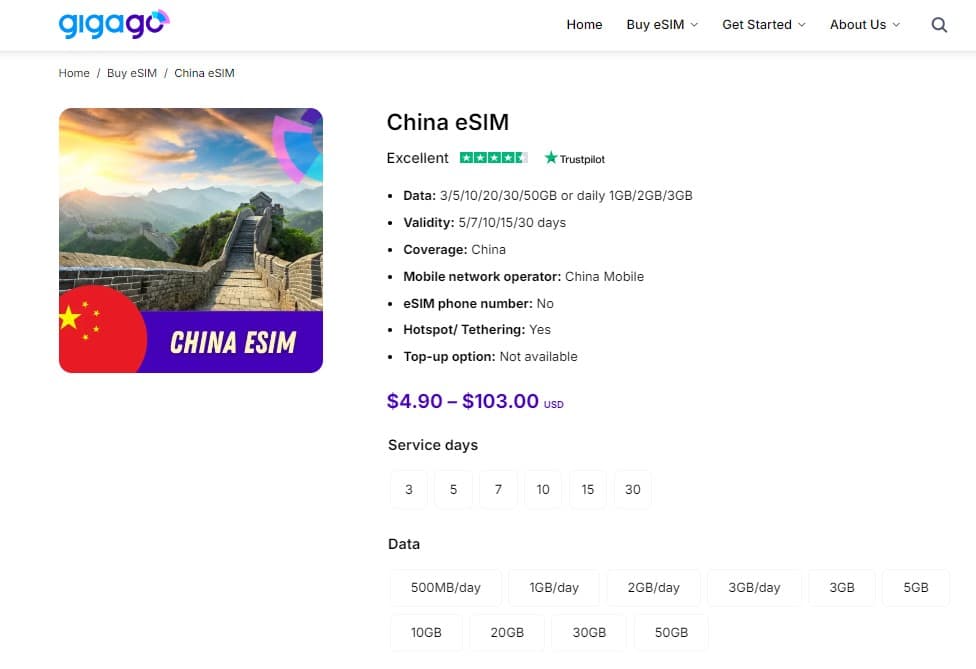
2. Prepaid SIM cards
Using prepaid local SIM cards provides a local phone number for calls and registrations, along with various data plans. This is particularly useful for accessing apps that require a Chinese phone number, such as WeChat.
However, using a local SIM may require you to remove your primary SIM card if your phone only has one SIM slot.
You can buy a Chinese SIM card at airports in Shanghai, Beijing, etc upon arrival, or from official stores of major providers like China Unicom, China Telecom and China Mobile. They are widespread and easy to find.
However, you will need to present a passport for registration. Be prepared for potential language barriers upon purchase.
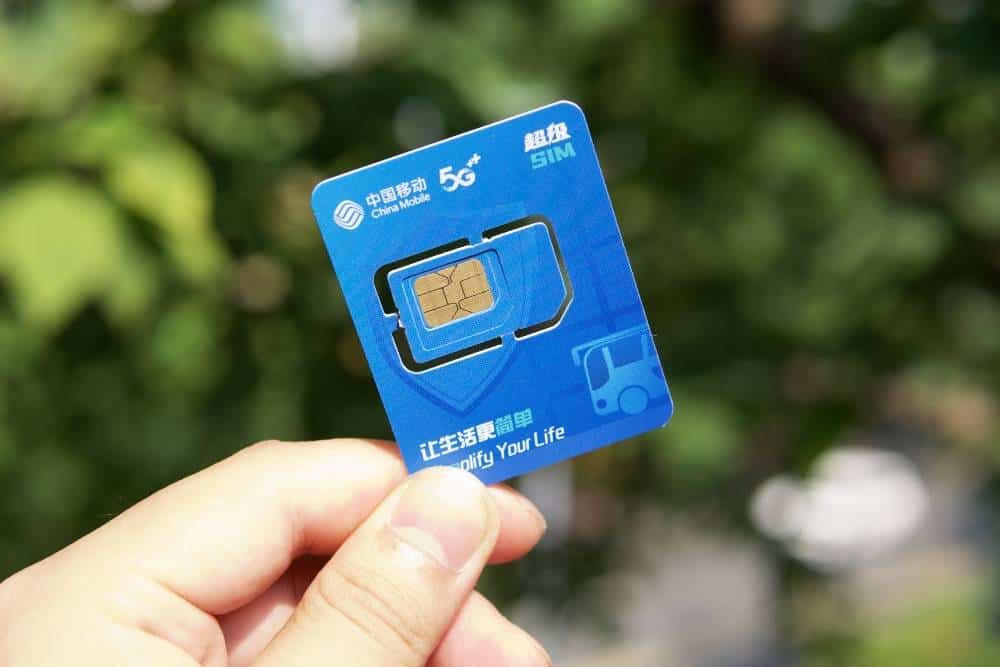
3. International roaming
International roaming allows you to use your existing phone number while in China. It is easy to set up but is often the most expensive option and typically comes with limited data allowances.
4. Portable pocket WiFi
Renting a portable pocket WiFi device allows you to connect multiple devices simultaneously and often offers and offers good coverage. You can rent a WiFi router at airports or from TravelWiFi, Skyroam online companies. However, this option involves extra costs and shipping for renting or returning the device. You also need to charge the device regularly due to battery life limitations.
For many travelers, using an eSIM is the most convenient and practical option (but only ones with eSIM-supported phones). It eliminates the need to search for WiFi or obtain a Chinese phone number, allowing for effortless connectivity throughout your trip.
V. FAQs
Is WiFi readily available in China?
Yes, WiFi is easily found across China in general, but particularly good in cafes, hotels, restaurants and bars. You can improve your Internet access by getting a Chinese phone number to login some specific WiFi networks.
Should I connect to WiFi in China?
Yes, but only for common internet activities like surfing web, checking email, or sharing memories during your trip. For private tasks or information like online banking, you should avoid public WiFi and public hotspots. Use trusted connection of cellular data whenever possible. If use of public WiFi or hotspots is unavoidable, you should use VPN.
How fast is WiFi speed in China?
WiFi internet speed in China can vary by location, but you will generally find the fastest connection in big cities like Beijing and Shanghai. For example, the average internet speed in Beijing is about 232 Mbps, which is very fast.
What if I don’t have a Chinese number?
If you don’t have Chinese phone number, you can still access the WiFi networks in China by buying a local SIM card (but be aware of registration requirements), using a verification service, renting a phone to get a temporary phone number, and asking for help from locals.
Why can’t I connect to WiFi in China?
You may have trouble connecting to WiFi in China because the government restricts access to certain websites and apps like Facebook, Gmail, YouTube, etc. This means even if your device connects to the WiFi network, you still will not be a ble to access those blocked sites.
To bypass these restrictions, you will need to use a VPN such as NordVPN, which allows you to access the Internet more freely in China.





